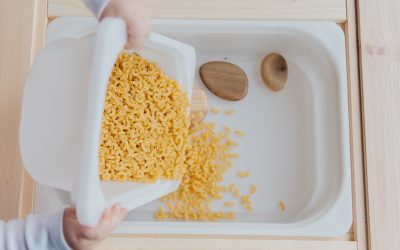Winter is on our doorstep, start building your family’s immunity, Here are 8 ways to build immunity …….. naturally.

How to Boost Kids Immune System
1. Avoid antibiotics unless absolutely necessary
Antibiotics are prescribed more than 154 million times a year for anything from a wound to an ear infection. The purpose of antibiotics is to kill off bacteria causing infections, and sometimes they are lifesaving, for sure. However, the CDC estimates that at least 30 percent of antibiotic prescriptions are unnecessary. This matters because antibiotics not only wipe out pathogenic bacteria, but deplete the beneficial bacteria in the gut microbiome. Why kill off the good guys when it’s not necessary?
If a doctor prescribes your child (or you) antibiotics, don’t just accept the prescription without a few questions. How necessary are these antibiotics? How likely is it that your child’s natural immunity will take care of the problem without the medicine? Are there more natural anti-bacterial options? Doctors focused on natural health sometimes recommend alternatives such as colloidal silver over antibiotics, to boost the immune system in kids without depleting the microbiome.
2. Serve more probiotic-rich foods
Start the school year off strong by building up good gut bacteria and providing immune support for your kids. One great way to do this is to serve more probiotic-rich foods to the whole family. Starting in the summer, offer fermented foods like sauerkraut or kefir (which comes in lots of flavors that your kid will, fingers crossed, love), or plant-based (unsweetened) yogurts mixed with fresh chopped or pureed fruit. If you have an extra picky eater, you could try kid-friendly probiotic gummies, for a painless dose of immune-boosting good bacteria. Some brands do contain sugar, though, so stick with whole food probiotic sources as much as possible.
3. Regulate the family sleep schedule before the first day of school
As the sun stays up late and schedules are unpredictable, summer can be a difficult time to establish a regular bedtime. Establishing a sleep schedule with a set bedtime and wake time can make a big difference in the ability to avoid the fall and winter sniffles. That means no more sleeping in or staying up late. Most children need between 10 and 14 hours (1) of uninterrupted sleep every day to be optimally healthy, so starting this sooner rather than later will make going back to school less of a struggle and a physical shock to the system. That means those little bodies will be better prepared to fight off any germs that come their way. A good night’s sleep is a great immune support for kids and an important routine rix going into the winter months.
4. Out with the sugar, in with the fruit
Summer, kids, and sugar seem to be an unavoidable combination, between pool parties, BBQs, and summer camps. However, sugar has been shown to alter the microbiome in some pretty extreme ways, feeding the more pathogenic sugar-loving bacteria, which can crowd out beneficial, immune-boosting bacteria. Give your child’s microbiome a boost by sending them to school with fruit instead of snack cakes and candy, or at least sweets made with natural sweeteners like stevia (so they don’t feel left out of the fun). At home, have fruit rich with vitamin C and antioxidants for dessert, like oranges and blueberries.
5. Give them a colostrum boost (yes, really)
Breastfed children are often healthier with fewer allergies, due to the protective, immune-boosting antibodies found in colostrum—the “first milk” produced from nursing moms. But older kids (and adults) can benefit from this antibody-rich substance from grass-fed cows and goats, available in a handy powdered form. Sneak it into smoothies, water, juices, and even kefir. They won’t know they’re getting an extra dose of super immune power, but you will! It works as a great immune booster for kids and toddlers.
6. Show them the door
Summer is a time for outdoor play, but that doesn’t have to start just because school started. Encourage your kids to be outside as much as possible all year round, not only for the exercise and fresh air but for the “sunshine vitamin,” aka vitamin D. The body absorbs sunlight using cholesterol to convert it to a usable form of vitamin D, and every single cell in your body requires vitamin D—your immune system in particular. However, because we don’t get enough outdoor time, most of us are deficient (vitamin D is one of the most common nutrient deficiencies in America), and low levels are linked to autoimmune conditions such as type 1 diabetes and inflammatory bowel disorders. Optimal levels have been shown to improve symptoms of these conditions by helping increase white blood cells, which are the defenders of your immune system. When school starts, family walks, outdoor games, and dinners al fresco are good ways to keep the vitamin D flowing.
7. Green up your meals
Of course we all know we should eat our greens, but do you know why? One good reason is methylation. Methylation is a biochemical process that happens throughout the body with many important functions, including detoxification. Sulfur-rich vegetables like brussels sprouts and broccoli, as well as dark leafy greens like kale and spinach, are loaded with the B-vitamins that fuel methylation and can help to power up your child’s ability to safely process and eliminate everything from pollution to chemical exposure.
And what about those kids who stubbornly refuse to gobble up veggies? Try making green smoothies and popsicles with just a little fruit for sweetness. They’ll be getting a sweet treat, and you’ll be getting the satisfaction of knowing they are strengthening their immunity and natural resilience.
8. Experiment with essential oils
These fun and easy immune-boosters for toddlers and kids, like eucalyptus and oregano, have been shown to have antibacterial and immune-modulating capabilities. Try diffusing them into your indoor environment to support the whole family’s immunity. Eucalyptus (2) has an energizing effect, and food-grade oregano (3) essential oil can be added to meals to enhance flavor, as well as your child’s immune system.



